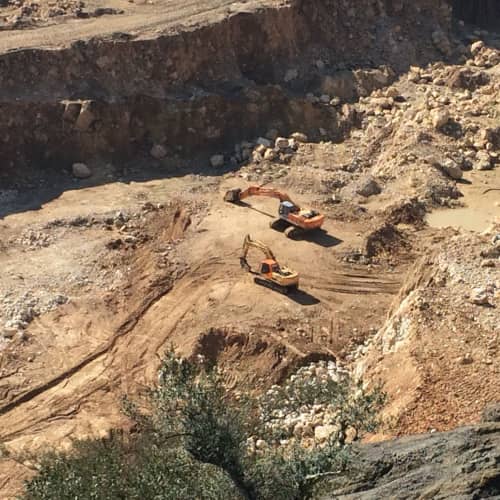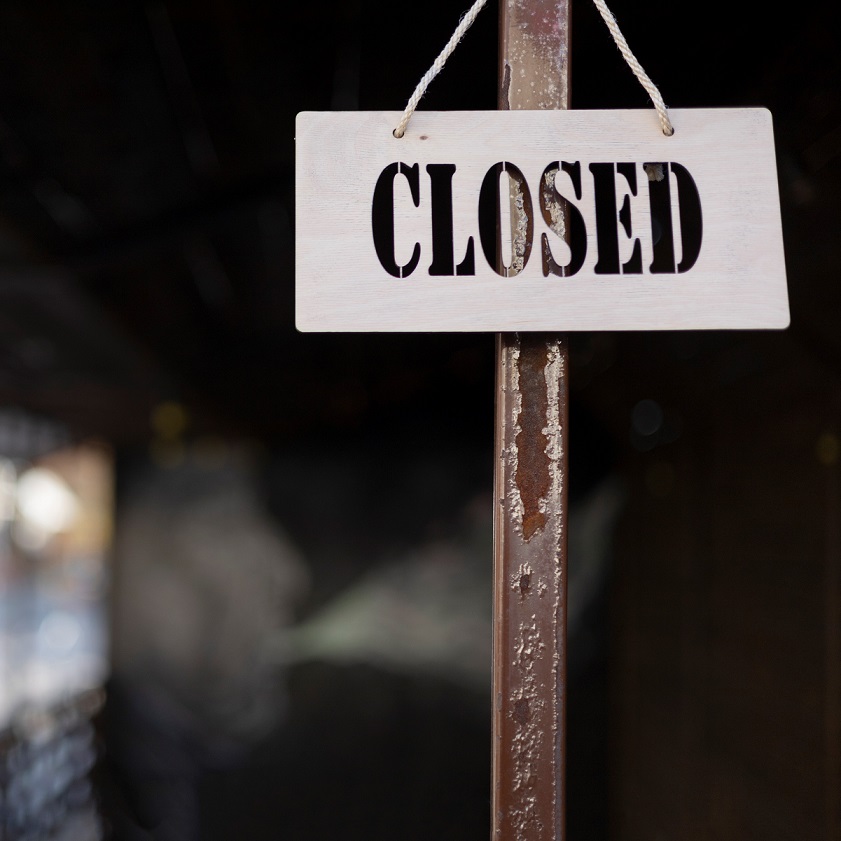In Gujranwala, the heart of the ceramics industry, most units have shut down, and the production of ceramic products is now minimal. The city’s two central tile manufacturing units, namely Master Tiles and Sonex Tiles, are currently non-operational, leading to thousands of workers in the industry facing unemployment.
Atif Lone, a ceramic products manufacturer in Chandda Qila near Gujranwala, had to reduce factory production by 30 per cent and lay off a third of his workers to cut expenses. Despite these measures, he couldn’t reduce his losses.
He says one of the reasons for this is the increase in gas prices, which, according to him, have doubled in one year.
Rana Shahzad Hafeez, Chairman of the Pakistan Ceramics Manufacturers Association, tells Lok Sujag that the ceramics industry’s biggest problem is the slow sale of goods caused by a construction work slowdown. Due to this, many people are selling their already-prepared products.
He mentions that around 4,000 families, including factory owners and workers, are directly involved in this business. When considering shops, this number increases to 40,000. Ceramics are used in many household and office items, like basins, toilets, flushes, tiles, and utensils.
Rana Shahzad Hafeez points out that industrialists are not consulted when gas prices increase. They set the price of the goods when they receive the order, but the gas price rises during production.
“If we want to run industries smoothly, we need to set fixed prices for taxes, electricity, and gas every year and also keep a check on the dollar’s value.”

He says the policies of the Sui Gas department are causing the most impact on the ceramics industry among government institutions.
The industry is affected by the high rates and the wrong procedure for collecting gas bills. The bill used to be paid after the end of the month, but now they charge three bills in advance. If a factory delays the bill payment even for a day, their gas connection is cut off.
Numan Ayub Butt’s family has been making ceramic products for 40 years. He thinks the industry has never been this bad.
He says the ceramics industry’s sales tax is now linked to gas bills. If a factory’s gas bill is Rs one crore, it has to pay Rs 17 lakh in sales tax, which has been raised to Rs 18 lakh in the recent budget. This tax is added to the gas bills.

In the ceramics manufacturing process, some raw materials are imported. Atif Lone mentions that the customs duty on these materials has been increased, leading to higher prices for imported zirconium and barium used in ceramics.
“These materials, which are imported from China and Africa, used to cost Rs 10 to 12 lakh for three tonnes not long ago. However, their cost has increased significantly, and they are being imported for Rs 30 to 40 lakh.”
Atif says that the dollar rate fluctuation has also badly affected the business, and Nauman agrees with him.
“The fluctuating dollar has disrupted the business. When we order goods from abroad, their rates increase by the time they reach Pakistan, and when we send goods abroad, the domestic currency falls before the goods arrive.”

Sheikh Zia-ul-Haq says that the business of exports and imports is connected to the dollar. When the dollar rate stabilises, exports will increase. But when the dollar price rises, the cost of production, customs duties, container travel costs, and more also increase.
The increase in the dollar value benefits only some exports and imports. Some people who are not into business might think that if the dollar goes up, the exporter benefits, but that’s incorrect.
An official from the Sui Gas Department explains that the increase in gas prices is due to supplying LNG gas to the ceramics industries. The gas tariff is linked to the dollar and international market rates.
He says that gas prices in the world market increased after the war between Russia and Ukraine, and Pakistan’s dollar prices also increased rapidly. These two reasons necessitated an increase in the prices of LNG.

He says that the price of regular gas in Pakistan is usually set in the annual national budget in June. However, the prices of LNG are fixed monthly, which causes ceramic industry owners to face price fluctuations and complain about it.
Sheikh Ziaul Haq complains that industries in Punjab are being provided with expensive gas. OGRA has set different tariffs for the Sui Northern Gas Pipeline Company and the Sui Southern Company. Additionally, there are separate tariffs for commercial and LNG usage.
Regarding the rate difference between provinces, the Sui Gas Department officer explains that Pakistan has only two gas companies: the Sui Northern Gas Pipeline Company and the Sui Southern Gas Company.
Also Read

Hurting nature: Cement factory in Chakwal cuts forest and denudes mountains for raw materials
“The Sui Southern Gas Company covers Balochistan and Sindh, where gas is produced. Since gas transmission costs are low in these areas, the gas rate there is also low. On the other hand, the Sui Northern areas include Punjab and Khyber Pakhtunkhwa, where there are additional costs for gas transmission. This is why the gas tariff in these areas is relatively higher.”
He says that the federal agency OGRA has the authority to decide the gas prices, and it does so based on the gas supply and the expenses incurred on it.
Mohammad Zubair, a resident of Aymanabad, lost his job due to the ceramics industry’s closure. He shares that the factory didn’t pay salaries for the first three months, promising to pay once they get new orders. However, after three months, the factory suddenly closed, with a promise of calling back for work and pending payments. It has been two months now, and neither the arrears nor new work has been provided.
He mentions that he has been making ceramics for 27 years and is skilled, but he had to start a tea stall due to unemployment. Everyone is saying that the factories won’t reopen anymore.
Published on 26 Jul 2023



















